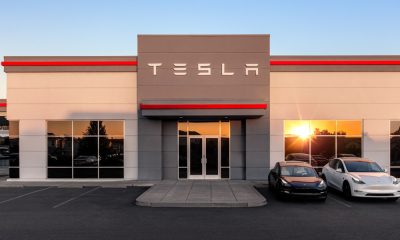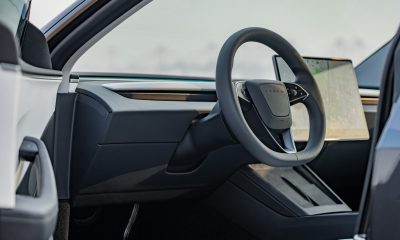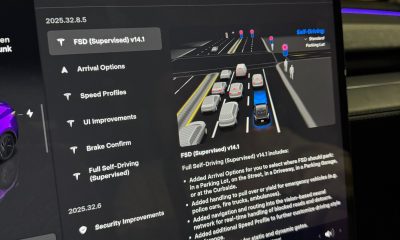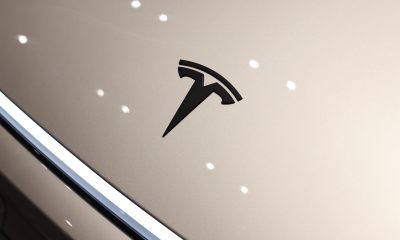Investor's Corner
Tesla-SolarCity merger gets the thumbs-up from shareholder advisory firm
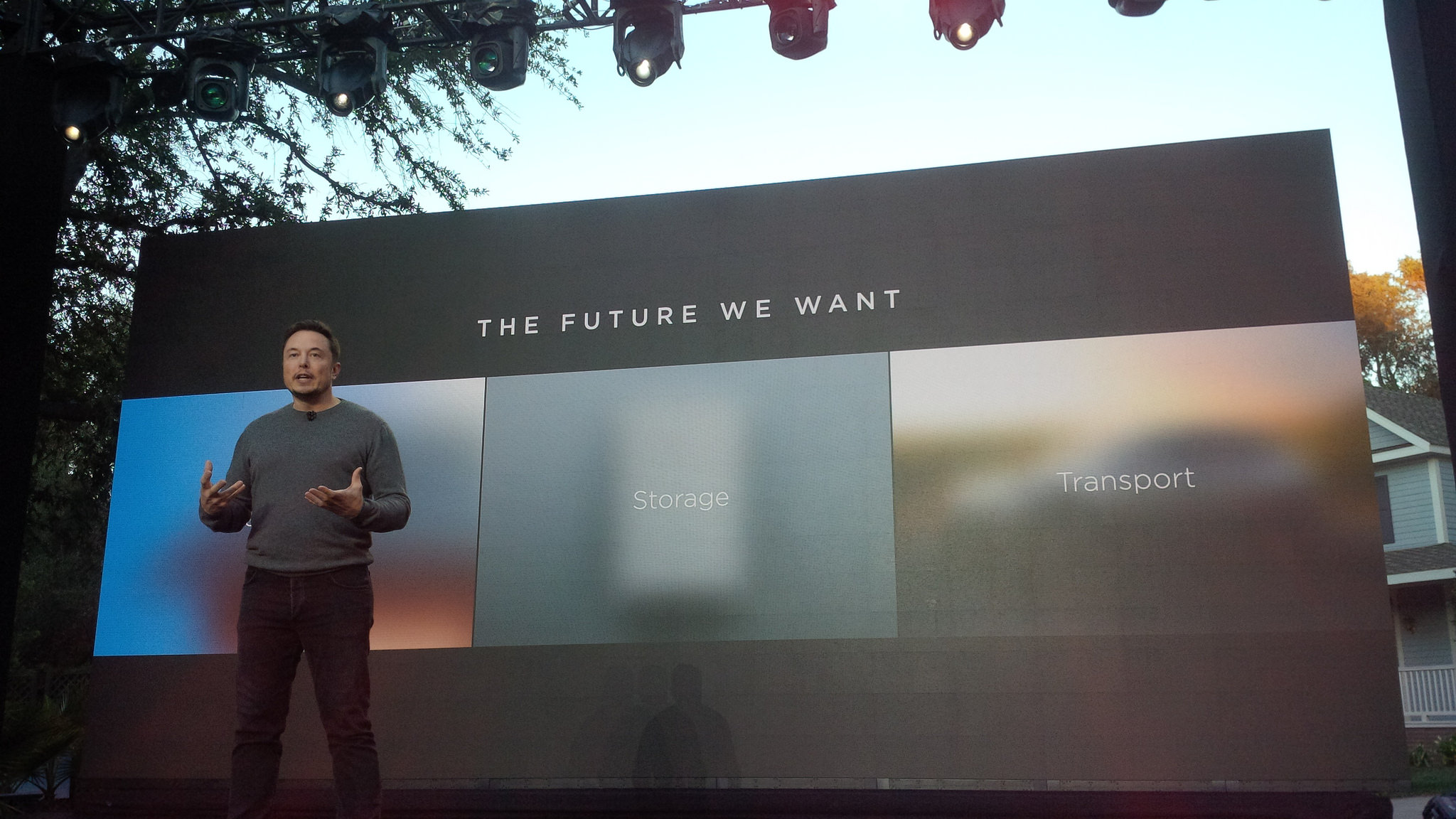
Influential advisory firm, Institutional Shareholder Services (ISS), has given its clients the go-ahead to back the proposed Tesla-SolarCity merger. The announcement came as the SolarCity shareholders’ vote on November 17 approaches quickly. ISS offered three reasons why SolarCity will ultimately benefit shareholders.
- Buying SolarCity will help Tesla CEO Elon Musk transform Tesla into a green energy company with a product catalog that ranges from solar panels to electric cars. On October 28th, Tesla and SolarCity unveiled a solar roof product, which, along with Powerwall 2.0, demonstrated the kinds of products that the combined company will be able to create.
- The merger’s estimated $150 million cost savings could produce $1.5 billion in eventual gains when capitalized, thus, covering two-thirds of the purchase price.
- The price is right. Tesla’s offering of .11 of a newly issued share of SolarCity translated into a bid valued at $20.99 as of November 4, 2016, lower that the trade value of SolarCity when Musk unveiled his merger intentions several months earlier.
The proposed merger is a $2.3 billion deal.
Critics have voiced concerns that the Tesla/ SolarCity merger amounts to little more than a bailout of a family business, as Musk’s cousins, Lyndon and Peter Rive, head SolarCity. Moreover, SolarCity’s overall financial picture has weakened as the company assumed $3.1 billion in debt to support its investments. Additionally, independent solar companies face many challenges, including an inability to produce adequate energy efficiency. Philip Shen with ROTH Capital Partners noted during a recent Q&A with Tesla and SolarCity executives that a number of companies have tried to pursue solar shingles in the past without success. Roth named Dow and Energy Conversion Devices as two companies who attempted to enter the solar shingle market but have “come and gone.”
The Tesla/ SolarCity merger is a necessary step in Tesla’s quest to become an integrated sustainable energy company. ISS affirmed that Tesla’s status as a $30 billion company without debt should have the wherewithal to reinforce gaps that should emerge within SolarCity’s financial architecture. These recommendations from ISS confer significant weight among the larger mutual funds, many of which make up Tesla’s independent shareholders. Musk has stated that the merger of the two companies is a “no-brainer.”
![]() If you’re considering solar for your home or business, we encourage you to get a solar cost estimate first, based on your monthly utility bill and location. The service is being provided by an affiliate partner and fan to Teslarati.
If you’re considering solar for your home or business, we encourage you to get a solar cost estimate first, based on your monthly utility bill and location. The service is being provided by an affiliate partner and fan to Teslarati.
Investor's Corner
Stifel raises Tesla price target by 9.8% over FSD, Robotaxi advancements
Stifel also maintained a “Buy” rating for the electric vehicle maker.

Investment firm Stifel has raised its price target for Tesla (NASDAQ:TSLA) shares to $483 from $440 over increased confidence in the company’s self-driving and Robotaxi programs. The new price target suggests an 11.5% upside from Tesla’s closing price on Tuesday.
Stifel also maintained a “Buy” rating despite acknowledging that Tesla’s timeline for fully unsupervised driving may be ambitious.
Building confidence
In a note to clients, Stifel stated that it believes “Tesla is making progress with modest advancements in its Robotaxi network and FSD,” as noted in a report from Investing.com. The firm expects unsupervised FSD to become available for personal use in the U.S. by the end of 2025, with a wider ride-hailing rollout potentially covering half of the U.S. population by year-end.
Stifel also noted that Tesla’s Robotaxi fleet could expand from “tiny to gigantic” within a short time frame, possibly making a material financial impact to the company by late 2026. The firm views Tesla’s vision-based approach to autonomy as central to this long-term growth, suggesting that continued advancements could unlock new revenue streams across both consumer and mobility sectors.
Tesla’s FSD goals still ambitious
While Stifel’s tone remains optimistic, the firm’s analysts acknowledged that Tesla’s aggressive autonomy timeline may face execution challenges. The note described the 2025 unsupervised FSD target as “a stretch,” though still achievable in the medium term.
“We believe Tesla is making progress with modest advancements in its Robotaxi network and FSD. The company has high expectations for its camera-based approach including; 1) Unsupervised FSD to be available for personal use in the United States by year-end 2025, which appears to be a stretch but seems more likely in the medium term; 2) that it will ‘probably have ride hailing in probably half of the populations of the U.S. by the end of the year’,” the firm noted.
Investor's Corner
Cantor Fitzgerald reaffirms bullish view on Tesla after record Q3 deliveries
The firm reiterated its Overweight rating and $355 price target.

Cantor Fitzgerald is maintaining its bullish outlook on Tesla (NASDAQ:TSLA) following the company’s record-breaking third quarter of 2025.
The firm reiterated its Overweight rating and $355 price target, citing strong delivery results driven by a rush of consumer purchases ahead of the end of the federal tax credit on September 30.
On Tesla’s vehicle deliveries in Q3 2025
During the third quarter of 2025, Tesla delivered a total of 497,099 vehicles, significantly beating analyst expectations of 443,079 vehicles. As per Cantor Fitzgerald, this was likely affected by customers rushing at the end of Q3 to purchase an EV due to the end of the federal tax credit, as noted in an Investing.com report.
“On 10/2, TSLA pre-announced that it delivered 497,099 vehicles in 3Q25 (its highest quarterly delivery in company history), significantly above Company consensus of 443,079, and above 384,122 in 2Q25. This was due primarily to a ‘push forward effect’ from consumers who rushed to purchase or lease EVs ahead of the $7,500 EV tax credit expiring on 9/30,” the firm wrote in its note.
A bright spot in Tesla Energy
Cantor Fitzgerald also highlighted that while Tesla’s full-year production and deliveries would likely fall short of 2024’s 1.8 million total, Tesla’s energy storage business remains a bright spot in the company’s results.
“Tesla also announced that it had deployed 12.5 GWh of energy storage products in 3Q25, its highest in company history vs. our estimate/Visible Alpha consensus of 11.5/10.9 GWh (and vs. ~6.9 GWh in 3Q24). Tesla’s Energy Storage has now deployed more products YTD than all of last year, which is encouraging. We expect Energy Storage revenue to surpass $12B this year, and to account for ~15% of total revenue,” the firm stated.
Tesla’s strong Q3 results have helped lift its market capitalization to $1.47 trillion as of writing. The company also teased a new product reveal on X set for October 7, which the firm stated could serve as another near-term catalyst.
Investor's Corner
Tesla just got a weird price target boost from a notable bear
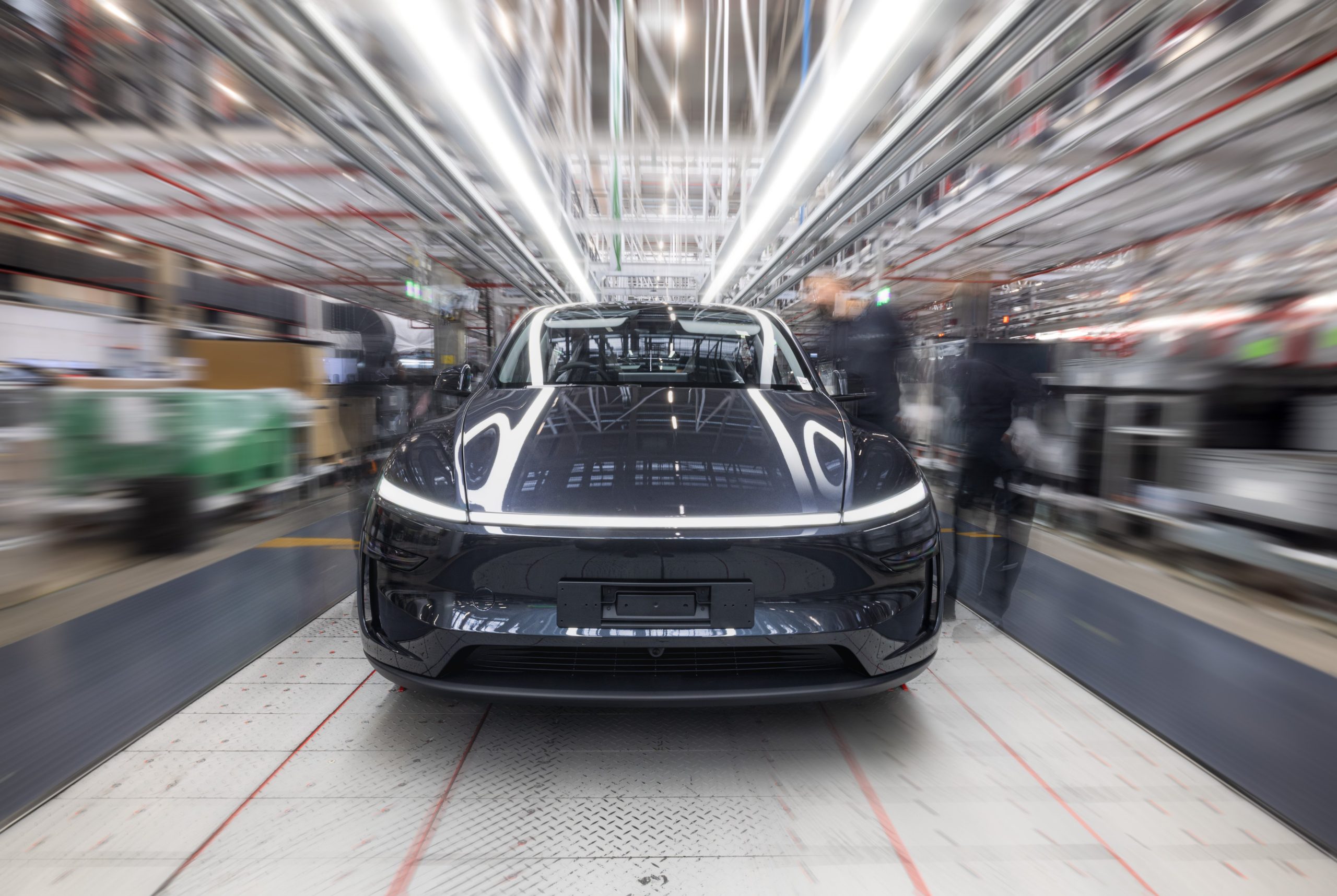
Tesla stock (NASDAQ: TSLA) just got a weird price target boost from a notable bear just a day after it announced its strongest quarter in terms of vehicle deliveries and energy deployments.
JPMorgan raised its price target on Tesla shares from $115 to $150. It maintained its ‘Underweight’ rating on the stock.
Despite Tesla reporting 497,099 deliveries, about 12 percent above the 443,000 anticipated from the consensus, JPMorgan is still skeptical that the company can keep up its momentum, stating most of its Q3 strength came from leaning on the removal of the $7,500 EV tax credit, which expired on September 30.
Tesla hits record vehicle deliveries and energy deployments in Q3 2025
The firm said Tesla benefited from a “temporary stronger-than-expected industry-wide pull-forward” as the tax credit expired. It is no secret that consumers flocked to the company this past quarter to take advantage of the credit.
The bump will need to be solidified as the start of a continuing trend of strong vehicle deliveries, the firm said in a note to investors. Analysts said that one quarter of strength was “too soon to declare Tesla as having sustainably returned to growth in its core business.”
JPMorgan does not anticipate Tesla having strong showings with vehicle deliveries after Q4.
There are two distinct things that stick out with this note: the first is the lack of recognition of other parts of Tesla’s business, and the confusion that surrounds future quarters.
JPMorgan did not identify Tesla’s strength in autonomy, energy storage, or robotics, with autonomy and robotics being the main focuses of the company’s future. Tesla’s Full Self-Driving and Robotaxi efforts are incredibly relevant and drive more impact moving forward than vehicle deliveries.
Additionally, the confusion surrounding future delivery numbers in quarters past Q3 is evident.
Will Tesla thrive without the EV tax credit? Five reasons why they might
Tesla will receive some assistance from deliveries of vehicles that will reach customers in Q4, but will still qualify for the credit under the IRS’s revised rules. It will also likely introduce an affordable model this quarter, which should have a drastic impact on deliveries depending on pricing.
Tesla shares are trading at $422.40 at 2:35 p.m. on the East Coast.
-
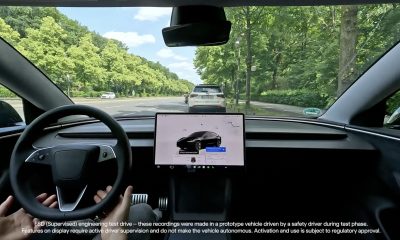
 Elon Musk2 weeks ago
Elon Musk2 weeks agoTesla FSD V14 set for early wide release next week: Elon Musk
-
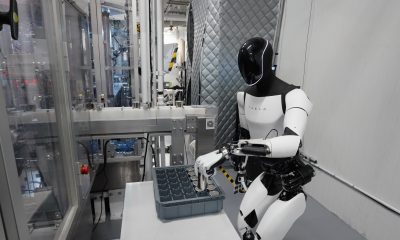
 News2 weeks ago
News2 weeks agoElon Musk gives update on Tesla Optimus progress
-
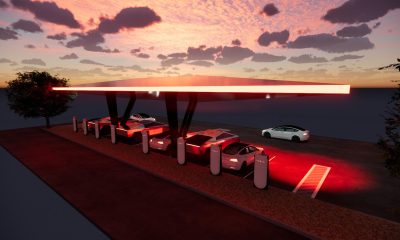
 News2 weeks ago
News2 weeks agoTesla has a new first with its Supercharger network
-
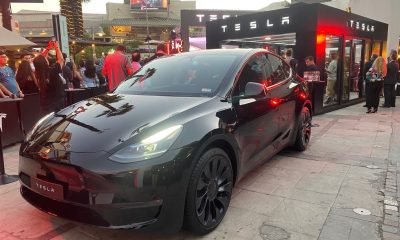
 News2 weeks ago
News2 weeks agoTesla job postings seem to show next surprise market entry
-
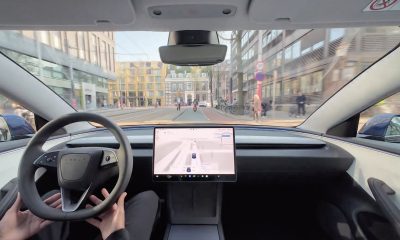
 Investor's Corner2 weeks ago
Investor's Corner2 weeks agoTesla gets new Street-high price target with high hopes for autonomy domination
-

 Lifestyle2 weeks ago
Lifestyle2 weeks ago500-mile test proves why Tesla Model Y still humiliates rivals in Europe
-
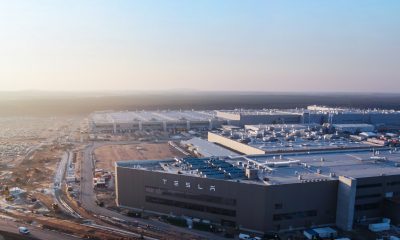
 News1 week ago
News1 week agoTesla Giga Berlin’s water consumption has achieved the unthinkable
-
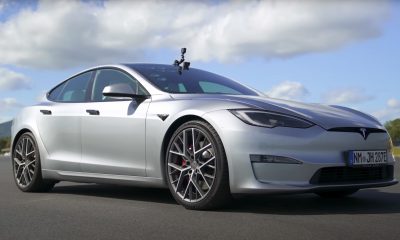
 Lifestyle2 weeks ago
Lifestyle2 weeks agoTesla Model S Plaid battles China’s 1500 hp monster Nurburgring monster, with surprising results


